Agnès Varda: A Cinematic Pioneer and Trailblazer
Agnès Varda, born Arlette Varda on May 30, 1928, in Ixelles, Brussels, left an indelible mark on the world of cinema. A Belgian-born film director, screenwriter, photographer, and artist of French and Greek origins, Varda's influence extends beyond her impressive filmography. Her work, characterized by a unique blend of documentary and fiction, challenged the conventions of filmmaking in the mid-20th century. This article delves into the life, career, and impact of Agnès Varda, celebrating her legacy as a cinematic pioneer.
Early Life and Education: A Journey to Artistic Discovery

Varda's journey into the world of arts began in her early years. Born to Christiane and Eugène Jean Varda, an engineer, she grew up in Brussels before relocating to Sète, France, during World War II. This period marked the beginning of her lifelong friendship with sculptor Valentine Schlegel. Varda's educational pursuits took her to the École du Louvre, where she studied art history, and later to the École des Beaux-Arts, where she focused on photography. She also attended the Sorbonne, earning a bachelor's degree in literature and psychology.
The young Agnès Varda faced challenges adapting to life in Paris, describing it as 'truly excruciating.' Her experiences at the Sorbonne were less than favorable, with classes deemed 'stupid, antiquated, abstract, [and] scandalously unsuited for the lofty needs one had at that age.' Nevertheless, these early struggles laid the foundation for her unique perspective and creative resilience.
Photography Career: A Fusion of Stills and Cinema
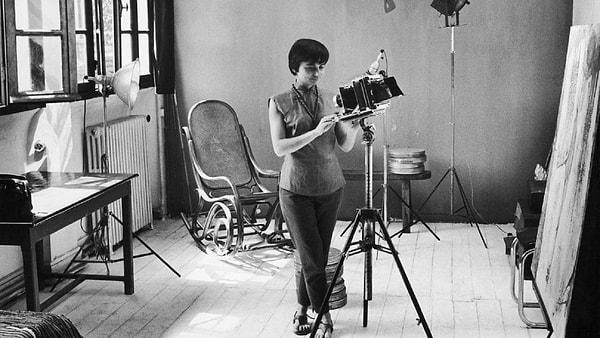
Initially intending to become a museum curator, Varda redirected her path to study photography at the Vaugirard School of Photography. This decision proved pivotal, as it marked the beginning of her fluid interrelationship between photographic and cinematic forms. She once stated, 'I take photographs or I make films. Or I put films in the photos, or photos in the films.' Varda's early experiences as a photographer at the Théâtre National Populaire in Paris shaped her artistic vision.
Her photographic background significantly influenced her filmmaking approach. Varda often used still images as models for her film shots, blurring the lines between the two mediums. This fusion of photography and cinema became a hallmark of her cinematic style.
Filmmaking Career: A Trailblazer in the French New Wave
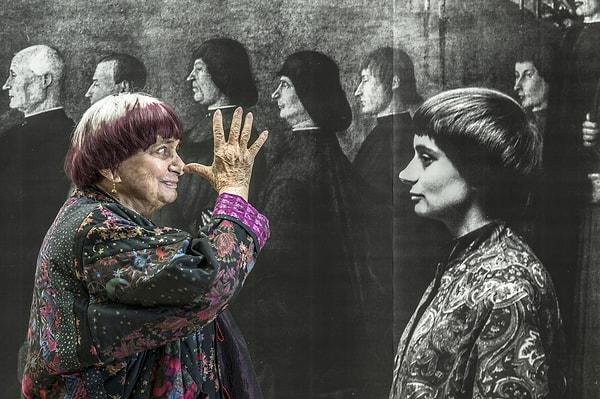
Varda's filmmaking career predates the French New Wave, yet her work shares many elements with this groundbreaking movement. Although she had limited exposure to films in her early years, she felt compelled to create, writing her first screenplay and forming a cooperative to bring it to life. This instinctive and feminine approach to filmmaking set her apart.
In 1954, Varda directed her debut feature film, 'La Pointe Courte,' a stylistic precursor to the French New Wave. This film, focusing on an unhappy couple in a small fishing town, showcased her interest in character abstraction and the interplay of fictional and documentary elements. Despite its acclaim among critics, it faced financial challenges, leading Varda to produce short films for the next seven years.
'Cléo from 5 to 7' (1961) marked another milestone in Varda's career. This film, following a pop singer awaiting biopsy results, explored mortality and the objectification of women. Mixing documentary and fiction, Varda presented diegetic action occurring between 5 and 7 p.m., challenging traditional narrative structures.
Establishing her production company, Ciné-Tamaris, in 1977, Varda gained more control over her filmmaking process. Over the years, she continued to produce influential works, such as 'Vagabond' (1985), 'The Gleaners and I' (2000), and 'Faces Places' (2017).
Style and Influences: Auteur Theory and Cinécriture
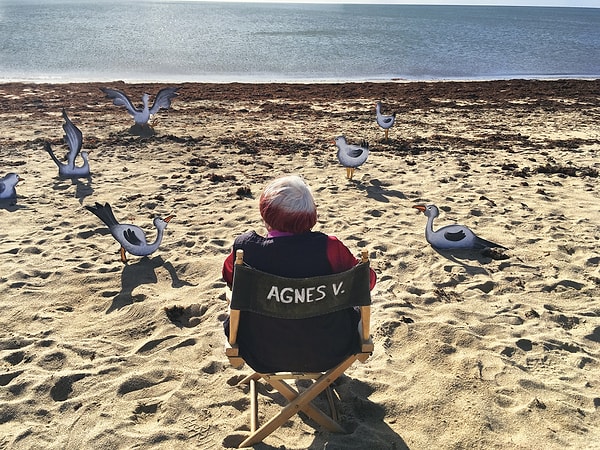
Varda's films often featured protagonists from marginalized segments of society, aligning with the documentary nature of her work. Influenced by auteur theory, she considered her method 'cinécriture' or 'cinematic writing.' Unlike traditional filmmaking roles, Varda believed all elements should work together simultaneously, creating a cohesive message. Her meticulous attention to detail and the interplay of still and moving images defined her cinematic language.
Surrealism, William Faulkner, Franz Kafka, and Nathalie Sarraute were among Varda's artistic and literary influences. Her work, belonging to the Left Bank Cinema movement, combined documentary filmmaking, left-wing politics, and formal experimentation. Varda resisted traditional norms, contributing to a more experimental and socially motivated approach.
Feminist Filmmaker: Crafting a Female Cinematic Voice
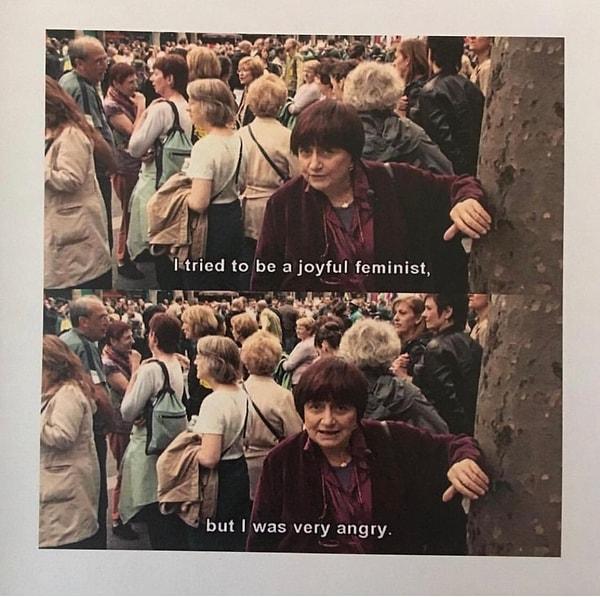
While Varda didn't identify as a feminist theorist, her work is often considered feminist due to its female protagonists and a distinct feminine cinematic voice. Rejecting conventional norms, she embraced her femininity boldly. Varda's films often delved into women's issues thematically, and she remained true to her craft, refusing to conform to conventional or masculine expectations.
Personal Life and Legacy: A Life Well-Lived
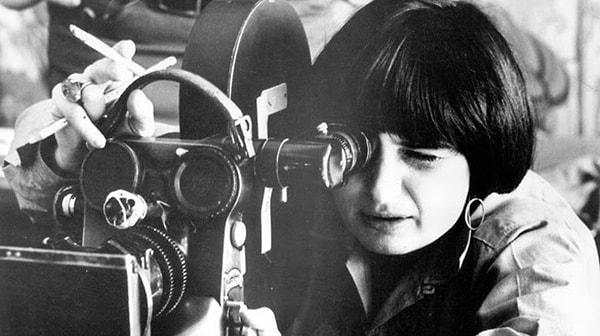
Agnès Varda's artistic journey continued until her passing on March 29, 2019, at the age of 90. Her funeral drew prominent figures from the film industry, highlighting the impact she had on cinema and the lives of those who had the privilege of knowing her. Her death marked the end of an era, leaving behind a legacy that resonates through her groundbreaking films, her influence on the French New Wave, and her pioneering contributions to feminist cinema.
Varda's approach to filmmaking, characterized by a keen humanism and a deep connection to the social issues of her time, set her apart as a visionary director. Throughout her career, she received numerous awards, including the Honorary Palme d'Or at the Cannes Film Festival in 2015 and an Academy Honorary Award in 2017. These accolades celebrated not only her artistic achievements but also her role as a trailblazer for women in cinema.
Beyond her impact on the big screen, Agnès Varda's legacy lives on through the Agnès Varda Award, established in her honor by the French Film Critics Association. This award recognizes outstanding contributions to the world of cinema and serves as a testament to the lasting influence of a woman who transformed the landscape of filmmaking.
As we reflect on Agnès Varda's life and work, it becomes evident that her cinematic explorations were not merely about storytelling but about capturing the essence of humanity. Her ability to blend fiction and reality, her focus on the marginalized and overlooked, and her unwavering commitment to her artistic vision ensure that Agnès Varda's impact endures, inspiring generations of filmmakers to come.
In the words of Agnès Varda herself, 'I'm not a theoretician. I'm an artist. All I want to do is invent, invent, invent.' And indeed, she did just that, leaving an indelible mark on the world of cinema and the hearts of those who experienced the magic of her storytelling.
Keşfet ile ziyaret ettiğin tüm kategorileri tek akışta gör!


Send Comment